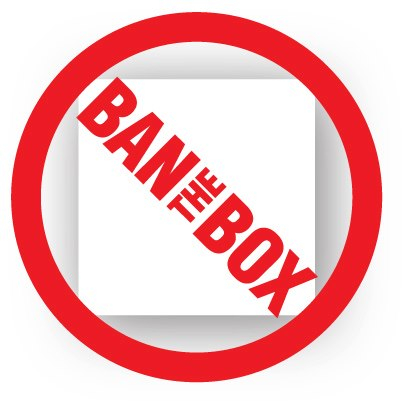Why 'Ban the Box' Matters

Applying for an entry-level job? One study found that a criminal record cuts in half the chance you’ll even get an interview. But there’s a national movement to end this discrimination: “Ban the Box.” Photo: Ban the Box, Virginia
Gadgets like Apple’s just-released watch symbolize the future—but the company doesn’t want to let workers move on from their pasts.
Apple recently booted several workers off the construction of its new spaceship-themed campus because within the past seven years they had been convicted of felonies.
Their union protested. Apple’s policy, rare in the construction industry, would have set what Iron Workers Local 377 called “an evil precedent.”
“Certain communities have suffered disproportionately from incarceration,” the Iron Workers pointed out in a public letter to CEO Tim Cook.
“These same communities have little representation in the core workforce of technology companies, and such benefits as they derive from an industry now central to our region are largely through employment in services such as construction.”
In other words, Apple’s sprawling new Silicon Valley campus won’t be hiring many neighborhood kids for tech jobs. Construction jobs are one of the only ways local people stand to benefit.
A few days later, after a volley of negative press, Apple rescinded the policy.
SECOND CHANCE
Ex-prisoners have already served their time; it’s grossly unfair to deny them a second chance. And it’s next to impossible to get your life back on track if you can’t get decent work.
Applying for an entry-level job? One study found that a criminal record cuts in half the chance you’ll even get an interview. But there’s a national movement to end this discrimination: “Ban the Box.”
The Box refers to the checkbox on an application form asking whether you’ve ever been convicted of a crime. In April, Virginia became the 15th state to eliminate it for state jobs.

SUPPORT LABOR NOTES
BECOME A MONTHLY DONOR
Give $10 a month or more and get our "Fight the Boss, Build the Union" T-shirt.
A hundred cities and counties have adopted similar laws. Typically they also prohibit background checks before an applicant has gone through several rounds of interviews, so the boss learns about your strengths before seeing your rap sheet.
Since the 1970s, U.S. incarceration rates have more than quadrupled. One in 10 adults has a prior conviction; 1 in 3 has a criminal record. The FBI’s master criminal database catalogues 77.7 million names, the result of enormous numbers of arrests.
Given the highly unequal rates of incarceration by race, the Equal Employment Opportunity Commission argues that a blanket policy against hiring anyone with a record is a form of racial discrimination.
An estimated 6.6 percent of people born in the U.S. in 2001 will serve time in state or federal prison. That includes 1 in 3 African-American men and 1 in 6 Hispanic men—versus 1 in 17 white men.
Already 1 in 4 adult Black men has a felony conviction, up from 1 in 11 in 1980.
UNIONS TOO
The EEOC brought suits against BMW and Dollar General in 2013 for screening out applicants by checking their criminal backgrounds. But so far this type of suit hasn’t won in court—making Ban the Box campaigns all the more important.
It’s good to see unions throwing their weight behind these efforts. In Oregon, for example, unions have joined civil rights and community groups in the Fair Shot for All Coalition to push a set of bills in the legislature: Ban the Box, paid sick leave, a minimum wage hike, and steps to end racial profiling by police.
Meanwhile, unions face an unfortunate hiring dilemma of their own. The 1959 Landrum-Griffin Act, aimed at rooting out mob corruption, bars felons from holding union office or being hired as staff.
Some of our best leaders might have records. Ban the Box should be a plank of labor law reform, too.






